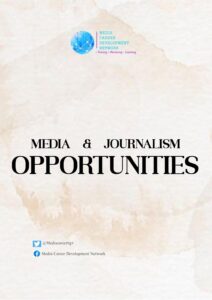The media undoubtedly has a major role to play in conflict resolution. Often individuals, groups and communities usually have cause to disagree on one issue or the other. Except the conflict is quickly resolved, it may degenerate into major crisis requiring peaceful resolution.
The success of the resolution of conflicts may sometimes depend on the role the media chooses to play. Depending on a number of factors, including ownership, interests of journalists, understanding of the issue in dispute and others, the media can decide to take sides in a conflict and make it impossible for it to be easily resolved.
The media can choose to inflame passion through sensational reports informed by commercial interests, be used as propaganda tool through publication or broadcast of falsehood and undermine efforts to resolve conflicts.
I recall the violent crisis that followed the second republic gubernatorial election in the old Ondo State between the defunct National Party of Nigeria (NPN) and Unity Party of Nigeria (UPN). While the state radio station supporting the incumbent Late Chief Adekunle Ajasin repeatedly played the song “Get up, Stand up. Stand up for your right. Get up, stand up, don’t give up the fight” to urge the citizens to resist the alleged attempt by the federal government party, NPN to rig the election is favour of its candidate, Late Chief Akin Omoboriowo, the Federal Radio Station countered with the Late Sonny Okosun’s music, “Give peace a chance, Give peace a chance, Give peace a chance and watch me grow”.
Many lives and property were lost in the epic battle for the state which was eventually retained by the UPN.
The widely accepted roles of the media are to inform, educate and entertain. The information and education role of the media provides it with a major opportunity to help resolve conflicts, especially when the ethics of the profession are strictly adhered to.
The ethics of the profession demands among others that media professionals should the truthful, accurate, fair and balance in their reports and broadcast. Unfortunately this is not the case in many media reporting of conflicts. Instead of helping to resolve conflict, the media most times end up helping to complicate the situation. The notion that bad news sells probably explains why media will sometimes prefer that a crisis last longer than it should. Our commercial interest should not override that of the general public or the affected community or group as the case maybe.
More than ever before as Nigeria and indeed the world generally gets engulfed in multifaceted crisis which has grave implications for economic, political and social development, the media has to rise up to play the desirable role helping to resolve conflict from which it cannot be immune from in some instances.
Where possible, the media should in accordance with its agenda setting role, help prevent conflicts. We should foresee conflict situations and call all concerned to order. Our call for caution may be ignored but let it be on record that we spoke up when we should.
Specifically, the media should stick to the truth in reporting all sides of a conflict instead of publishing falsehood and propaganda from interested parties. The standard maxim of media practice is when in doubt leave out.
Claims and counter claims like in the case of the Boko Haram killings should be verified so as not to create false impression of the true situation at hand.
The media should not miss out the sufferings of the victims of conflicts instead of placing undue emphasis on the ‘heroic’ deeds of the combatants.
Peace initiatives should be highlighted and encouraged considering that conflict is an ill wind that does not blow anyone any good. The worst of conflicts have to be resolved one way or the other. The earlier it is resolved the better.
Paper by Lekan Otufodunrin, Editor, Online, The Nation Newspaper at the Media Panel: Reportism in Conflict by Ufuk Dialogue Foundation and Nigerian Turkish Nile University held on Monday, January 21, 2013 at School of Communication, Lagos State University, Lagos.




